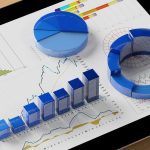Big data is the driving force behind the information revolution. According to estimates from IBM, we have access to 300 times the amount of information that was available in 2005, only 14 years ago. With the rapid pace of innovation ” accelerating with each passing year ” this information will prove invaluable. Given the utility of big data, environmentalists have started to … [Read more...] about How Big Data Is Transforming Environmental Sustainability
Big Data
Learn everything you need to know about big data. Find out how companies are using this revolutionary technology and what it means for your business strategy.
Technology and Big Data are Bringing in a New Wave of Financial Advising
Thanks to tech, investors have so many more options now than they did in the past, including a multitude of choices for financial advising ” however, that may be exactly why so many investors are opting for human advisors. In a fast-paced, automated world, it's a treat to sit down with a real person who will walk you through your investment options. The financial advisors … [Read more...] about Technology and Big Data are Bringing in a New Wave of Financial Advising
Digital Supply Chain: Connecting the Dots of Design to Operate SCM Processes
The supply chain of today is governed by the manufacturer, wholesaler, retailer, and businesses operating in between. Not only has the concept of a supply chain progressed by leaps and bounds during the last decade or so, but it is also one of the most critical functions for an organization looking to achieve its short-term and long-term business goals. The supply chain, if … [Read more...] about Digital Supply Chain: Connecting the Dots of Design to Operate SCM Processes
Why Cleaner Marketing Data is Essential for IT
In a world where B2B companies clash over who gets to be on top in terms of sales, numbers play a pretty big part. More so because variables such as conversion rates and lead traffic can point you to whether you need to up your marketing game. This explains why enterprises are putting much of their resources on lead generation and content marketing. The idea is to generate as … [Read more...] about Why Cleaner Marketing Data is Essential for IT
Hunting for Data: a Few Words on Data Scraping
No matter how intelligent and sophisticated your technology is, what you ultimately need for Big Data Analysis is data. Lots of data. Versatile and coming from many sources in different formats. In many cases, your data will come in a machine-readable format ready for processing Š ” Šdata from sensors is an example. Such formats and protocols for automated data transfer are … [Read more...] about Hunting for Data: a Few Words on Data Scraping
What is big data?
Big data is a term that refers to the massive amount of digital data created and shared every day. Big data can transform how we live, work, and communicate. It can be used to improve everything from public health and urban planning to business and marketing.
Big data is also changing the way we think about privacy and security. The volume, velocity, and variety of big data present challenges and opportunities for organizations and individuals. Regardless, big data is here to stay, and its impact will only continue to grow in the years to come.
What is big data analytics?
Big data analytics is the process of turning large, complex data sets into actionable insights. Businesses use various analytical tools and techniques, including machine learning and statistical analysis, to do this.
Big data analytics can be used to improve decision-making in areas like marketing, operations, and customer service. It can also be used to identify new business opportunities and optimize existing processes. With the help of big data analysis, businesses can gain a competitive edge by using their data better.
Want to learn more about big data? Datafloq has courses available. Contact us to get started.
When was big data introduced?
The term big data was coined in the 1990s, with some giving credit to John Mashey for popularizing the term. However, the concept of big data has been around for much longer.
Where does big data come from?
In the early days of computing, scientists and businesses began to realize that the amount of data being generated was increasing exponentially. As a result, they began to develop new methods for storing and processing data.
Over time, these methods have become increasingly sophisticated and have played a key role in enabling businesses to make sense of vast amounts of information. Today, big data is used in various industries, from retail to healthcare, and its importance is only likely to grow in the years to come.
What are examples of big data?
One of the most common examples of big data is social media data. With over 2 billion active users, Facebook generates a huge amount of data every day. This includes information on user interactions, posts, and even location data. Analyzing this data can help companies better understand their customers and target their marketing efforts.
Another example of big data is GPS signals. These signals are constantly being generated by devices like cell phones and fitness trackers. When combined with other data sets, GPS signals can be used to provide insights into everything from traffic patterns to human behavior. Finally, weather patterns are another type of big data set. By tracking these patterns over time, scientists can better understand the impact of climate change and develop strategies for mitigating its effects.
How do companies use big data?
Companies use big data in marketing, product development, and customer service. By analyzing large data sets, businesses can identify patterns and trends that would be otherwise difficult to spot. For example, a company might use big data to track customer behavior patterns to improve its marketing efforts.
Alternatively, a company might use big data to improve its products by identifying areas where customers are most likely to experience problems. For instance, big data can be used to improve customer service by finding pain points in the customer journey. Ultimately, big data provides companies with a valuable tool for gaining insights into their business operations.






